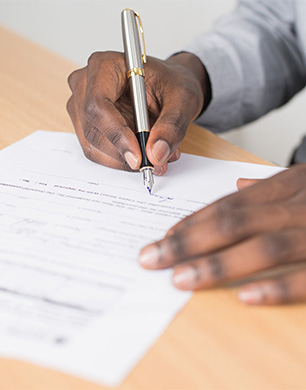
Photo Credit: Cytonn Photography
via www.pexels.com
The date, or lack of, on the Will of a deceased, can have significant consequences for executors, beneficiaries and other parties interested in an estate. Below are some common questions that many people often have when concerning the date of a Will.
Does a Will need to be dated in order to be valid?
No. A Will remains a valid legal instrument even if it does not have a date. However, without a date, there can be difficulty in proving that the undated Will is the last Will made by the deceased. This can cause uncertainty as to who the ultimate executors and beneficiaries are.
What if the Will contains an incorrect date or two different dates?
A Will containing an incorrect date or two different dates does not automatically become invalid. The Probate Registry will most likely demand evidence in order to confirm the date of when the Will was signed and that this is the final Will of the deceased when a probate application is made.
Can the validity of a Will be challenged based on the date of the Will?
On a Will, the date, or lack of, is not enough to challenge the Will’s validity. However, it can give rise to disagreements over which Will is the deceased’s final Will, particularly where two Wills are made very close together, which in turn can greatly impact the ultimate beneficiaries or executors.
It could also indicate some other issues with the validity of the Will, for example:
- Fraud: if the date has been added or altered by someone else at a later date.
- Lack of testamentary capacity: if the deceased lacked capacity at the date the Will was signed.
- Undue influence: if the deceased was being pressured into signing the Will at that date.
- Knowledge and approval: if the deceased had signed and dated the Will before the contents were properly explained to them.
What should I do if I am concerned about the validity of a Will?
Should you have concerns about a Will’s validity, as an executor, beneficiary, or other interested party, you can seek advice from a specialist contentious probate solicitor. They can talk you through your concerns and help to advise upon the best options available to you.
Article written by Jennifer McGuinness, Senior Associate in the Contentious Probate team at Myerson Solicitors.

